Wednesday, January 8, 2025
The Fairfax County Delegation to the General Assembly offered Fairfax County residents and county leaders the opportunity on Saturday, Jan. 4, to share issues of importance and positional statements ahead of the upcoming 2025 session. Nearly all of the delegation’s legislators attended the hearing from its 9 a.m. start, with others arriving as it got started.
During the in-person and live-streamed public hearing held in the Board Auditorium at the Fairfax County Government Center, many of the approximately 70 speakers testifying to the delegation presented persuasive stances backed by data. Written testimony could also be submitted via email to LegislativeTeam@fairfaxcounty.gov.
The delegation first heard from spokespersons of the county’s two governing bodies, the Fairfax County Board of Supervisors and the School Board. Supervisor James Walkinshaw spoke on behalf of the Board of Supervisors, and Melanie Meren spoke on behalf of the School Board.
Among startling facts in the testimony, Walkinshaw said the Commonwealth of Virginia shortchanges the county the "equivalent of $3,100 per student," which creates "a funding hole."
Meren said the funding shortfall "equates to potentially a whopping $1,300 on the average real estate tax bill for Fairfax County homeowners per the Board of Supervisors."
Walkinshaw said a key concern is the Commonwealth's funding of core services based on the governor's proposed budget amendments and the potential impacts on Fairfax County. He emphasized three issues: the need for substantial down payments on education funding, public transit needs including state assistance funding WMATA, and the importance of retaining local authority for effective government.
Walkinshaw emphasized that the problem with education funding is "as always" that the Commonwealth underfunds public education K-12, with "Virginia spending $1,900 less per student than the national average."
The current standards of quality dramatically underestimate the actual costs of public education, as evidenced by the Standards of Quality formula providing $6.6 billion less than local school boards spent in FY 21. “The formula systematically underestimates division costs and still uses Great Recession-era cost reduction measures," Walkinshaw said.
Walkinshaw reported that since 2009, the formula has not adequately accounted for "higher-needs students, and the methodology undercounts students in poverty." The formula does not adequately account for local labor costs and high costs of living areas." He criticized the governor's budget amendments, which "do not address any of the JLARC recommendations."
Walkinshaw said that during the upcoming 2025 session, by working with the delegation, other stakeholders, localities, and the Commonwealth's school divisions, "we can ensure the final budget makes a substantial down payment on funding for education."
"If the recommendations were fully implemented, it would yield nearly $569 million per year for Fairfax County Public Schools, the equivalent to $3,100 per student. … That $569 million state education funding hole is equivalent to more than 10 percent of Fairfax County's entire operating budget (for) schools and county services."
Fairfax County Public Schools reports it serves a population of nearly 183,000 prekindergarten through grade 12 students.
Second, Walkinshaw focused on "growing public transit needs in the Commonwealth and the region, including reviewing possible cost savings and efficiencies." Walkinshaw thanked the delegation for their efforts in providing additional funding for WMATA last year and asked for their "continued support in retaining those funds this year."
In closing, Walkinshaw stressed "retaining and expanding local authority for Fairfax County, particularly in areas of land use and taxation." Local governments must have the tools to make critical decisions in their communities.
Meren said the funding shortfall "equates to potentially a whopping $1,300 on the average real estate tax bill for Fairfax County homeowners per the Board of Supervisors."
Melanie Meren spoke on behalf of the Fairfax County School Board. She thanked the delegation for their continued support of the Virginia Literacy Act and for granting them local authority for local tax on prepared food tax policy solutions and local control of funds. "Far more desired than a casino in Fairfax County,” Meren said.
She echoed Walkinshaw's statements addressing the state's underfunding of schools. She noted that the state's "JLARC's report on K-12 funding identifies the investments critical to meet the state's constitutional requirement and which would ease Fairfax County's tax bills, where we spend 117 percent more. So that's $1.18 billion because … we don't want to be just average. … So we are spending additional money in Fairfax to be above average."
"This amount equates to potentially a whopping $1,300 on the average real estate tax bill for Fairfax County homeowners per the Board of Supervisors," Meren said.
Meren noted a second need, "Funding is needed for pedestrian safety on public roadways (and) for commuting to and from our schools."
__________________________
Residents Differ on Hot Topic Priorities
and Funding/ Bring to light uncommonly known legislative needs.
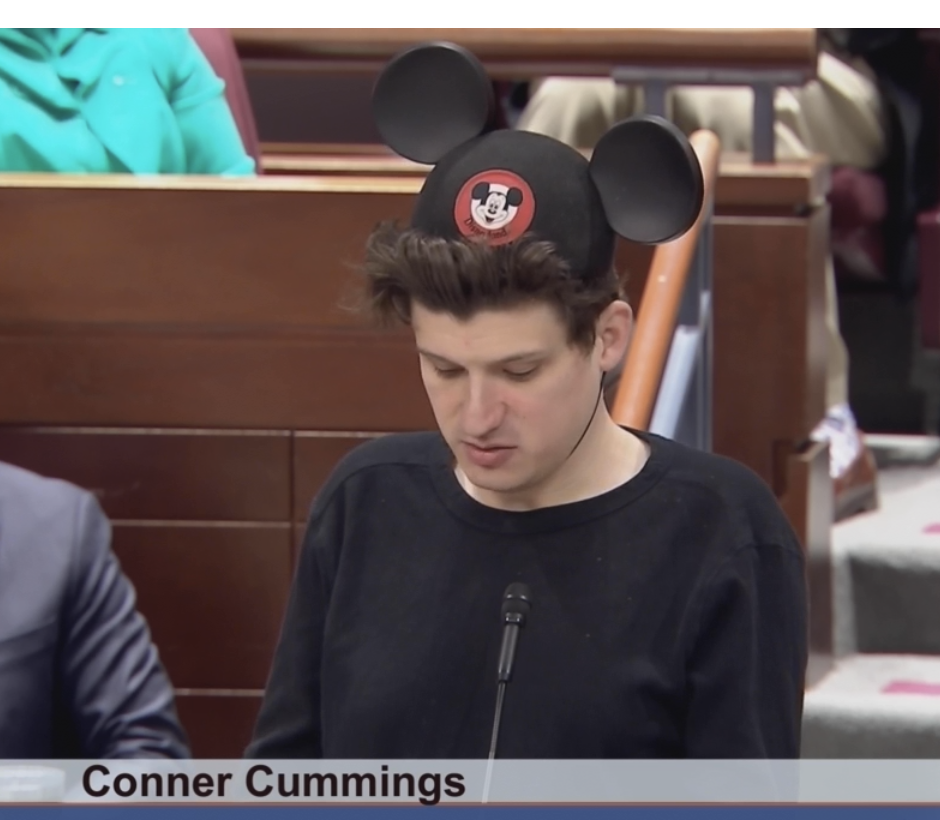
Connor Cummings, voting right lost under guardianship: “I am proud to be autistic. I want to make you aware of an important individual right that people with disabilities should not lose due to a family member or appointed person having guardianship over us. That is a right to vote. I love to vote. I read all about the candidates. Voting allows us to have a voice, no matter how we speak.”
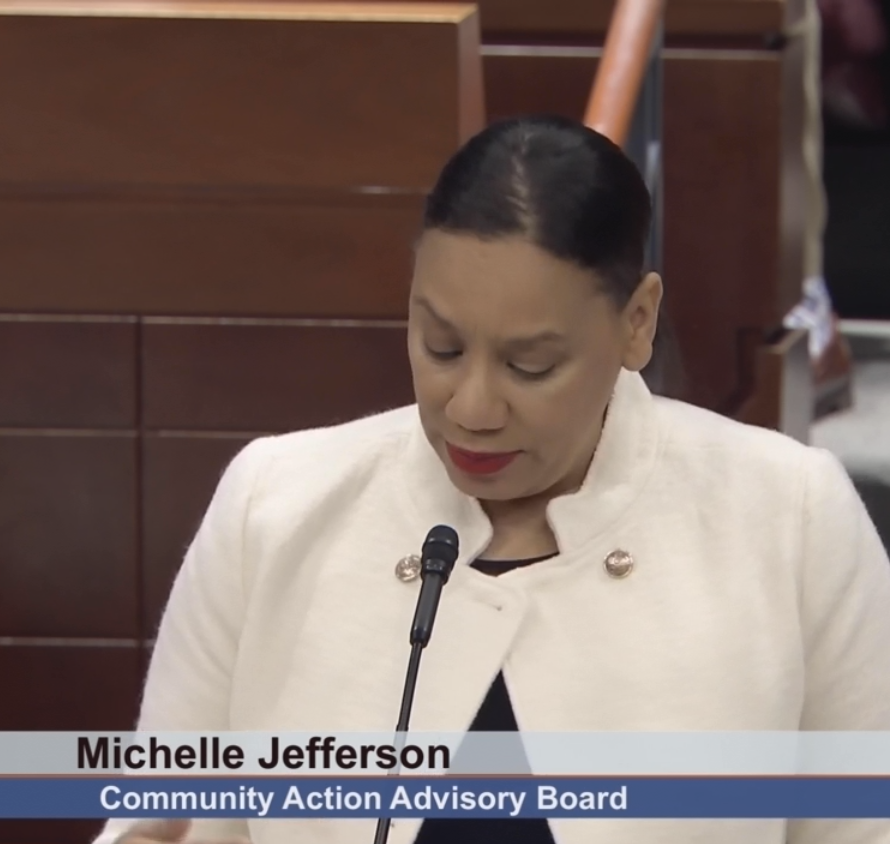
Michelle Jefferson of the Community Action Advisory Board, funding for food security: “We call on the General Assembly to allocate sufficient resources to combat food insecurity and support initiatives that ensure no Virginian goes hungry. Investing in these areas is not just a moral imperative but also an economic one; minimally, $3.19 billion. Stable housing, quality child care, and food security are foundational to the well-being and productivity of our neighbors.”
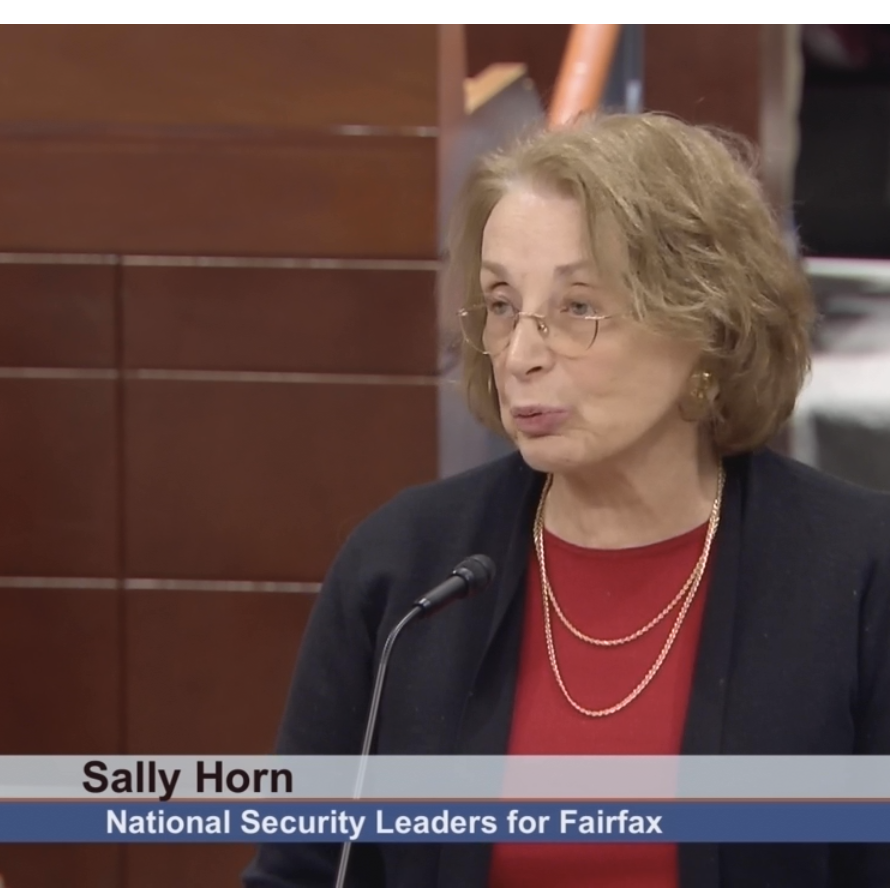
Sally Horn, on behalf of National Security Leaders for Fairfax, security risks associated with a casino in Tysons: Horn highlighted the concentration of sensitive national security organizations and defense contractors in the area. “Gambling addiction is a serious problem that afflicts elements of the national security population to a greater degree than it does the general population.… While it can be treated, some 80 to 90 percent of problem gamblers do not seek help, including many in sensitive positions who fear that they will lose their security clearances and their jobs if their addiction comes to light. … A Tyson's casino would be a very fertile ground for adversaries to seek out vulnerable intelligence, defense and military personnel to compromise and recruit.”
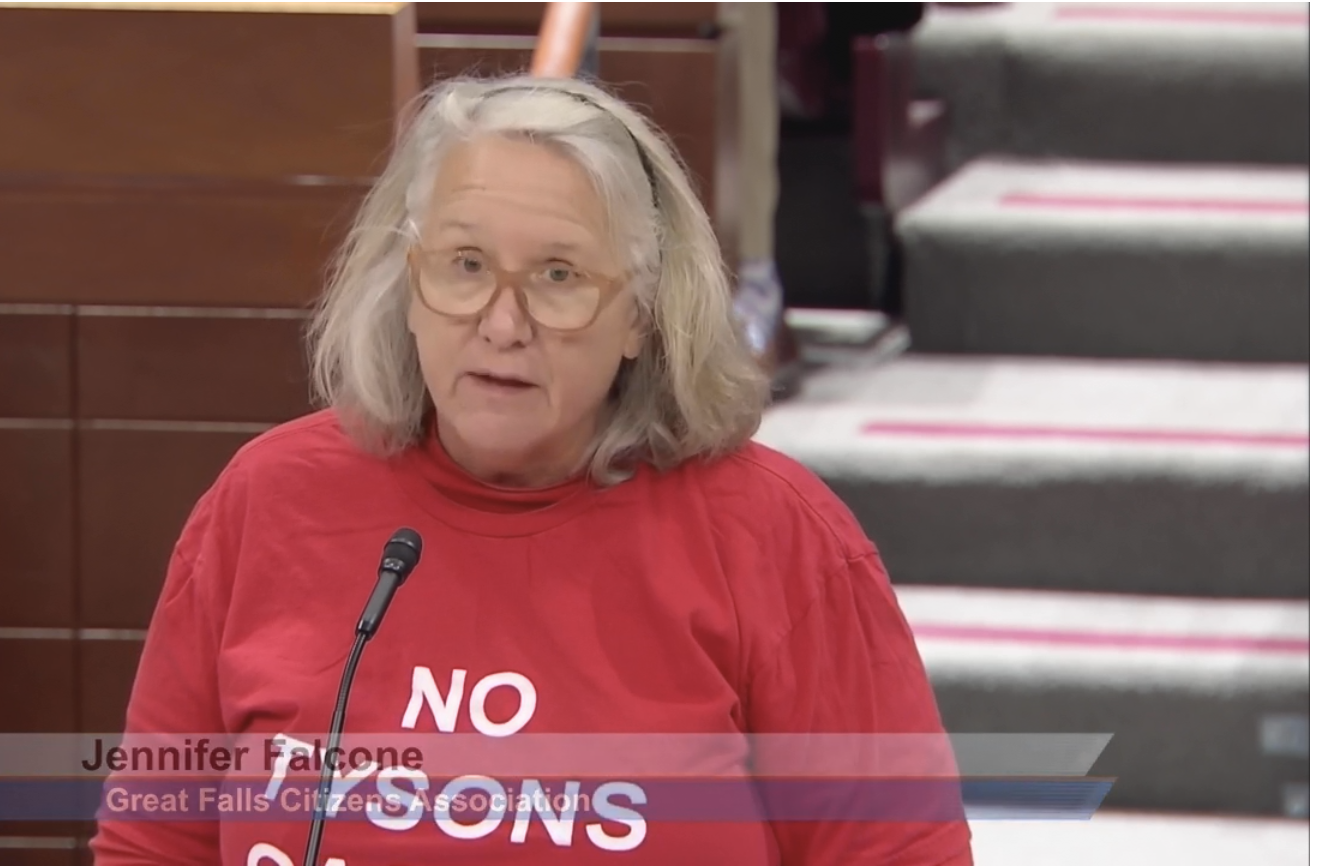
Jennifer Falcone, legislative priorities of the Great Falls Citizens Association: Priorities include maintaining local authority, supporting adequate funding and resources to oversee and regulate behavioral/mental health facilities and group homes; expanded revenue sharing for localities, supporting additional authority for localities to preserve the tree canopy and require rigorous environmental standards for data centers. “We support an expanded revenue sharing and aid to localities to bolster first responder recruitment, retention, and training, and we support legislation to authorize and expand the use of technology to include speed and vehicle noise enforcement in the Commonwealth.”
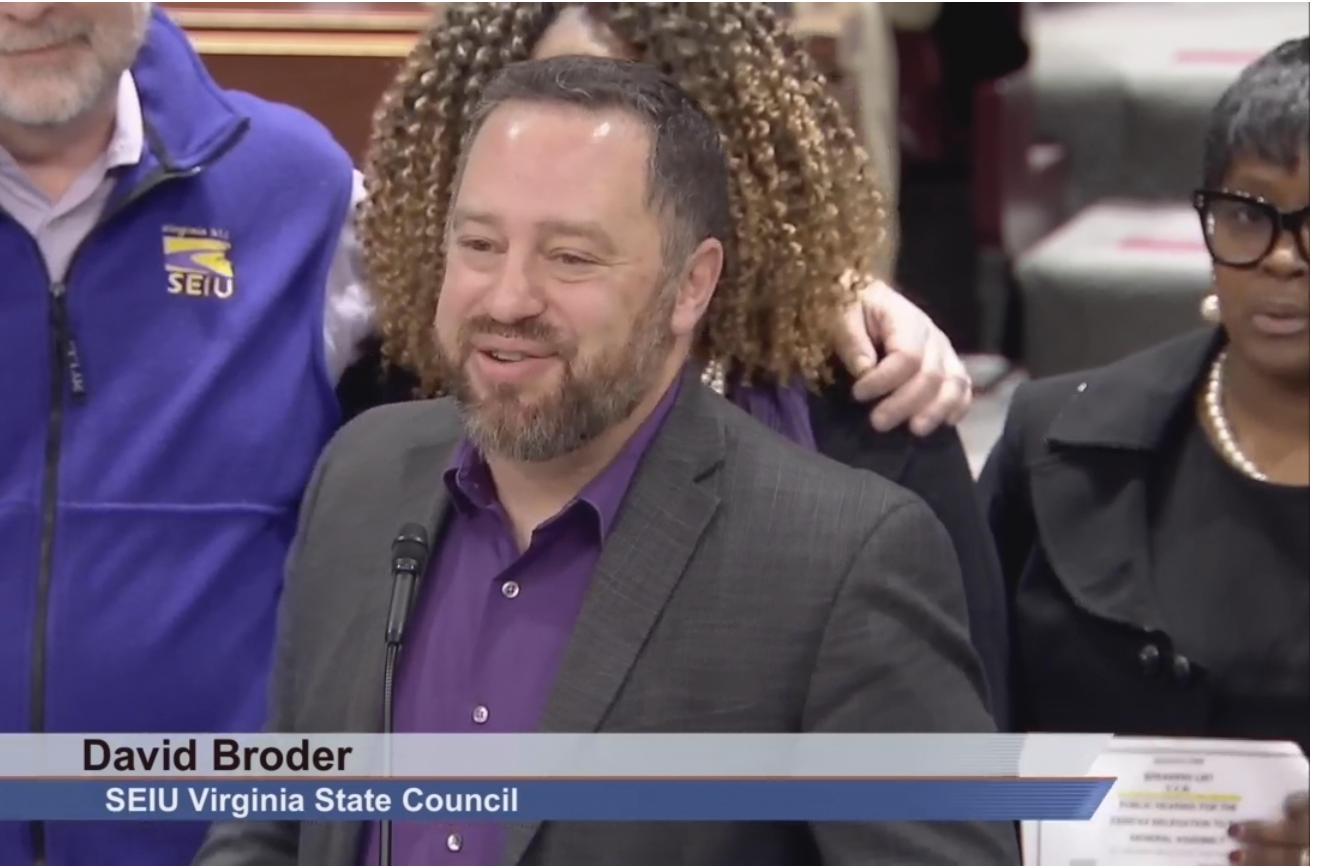
David Broder, executive director of the SEIU Virginia State Council, homecare workers: need collective bargaining: Broder outlined the priorities for the 2025 session, including expanding collective bargaining to all public sector workers. ”Over 80,000 Virginians have actively organized to win local collective bargaining ordinances. Over 50,000 have already successfully negotiated their first contract right here in Fairfax County. Over 27,000 educators have negotiated a contract to improve jobs and education for all kids and families, … You can continue this momentum and create more good union jobs that pay Virginians enough to take care of our families and contribute to our amazing communities. … Expand collective bargaining to the public sector, including home care workers.”
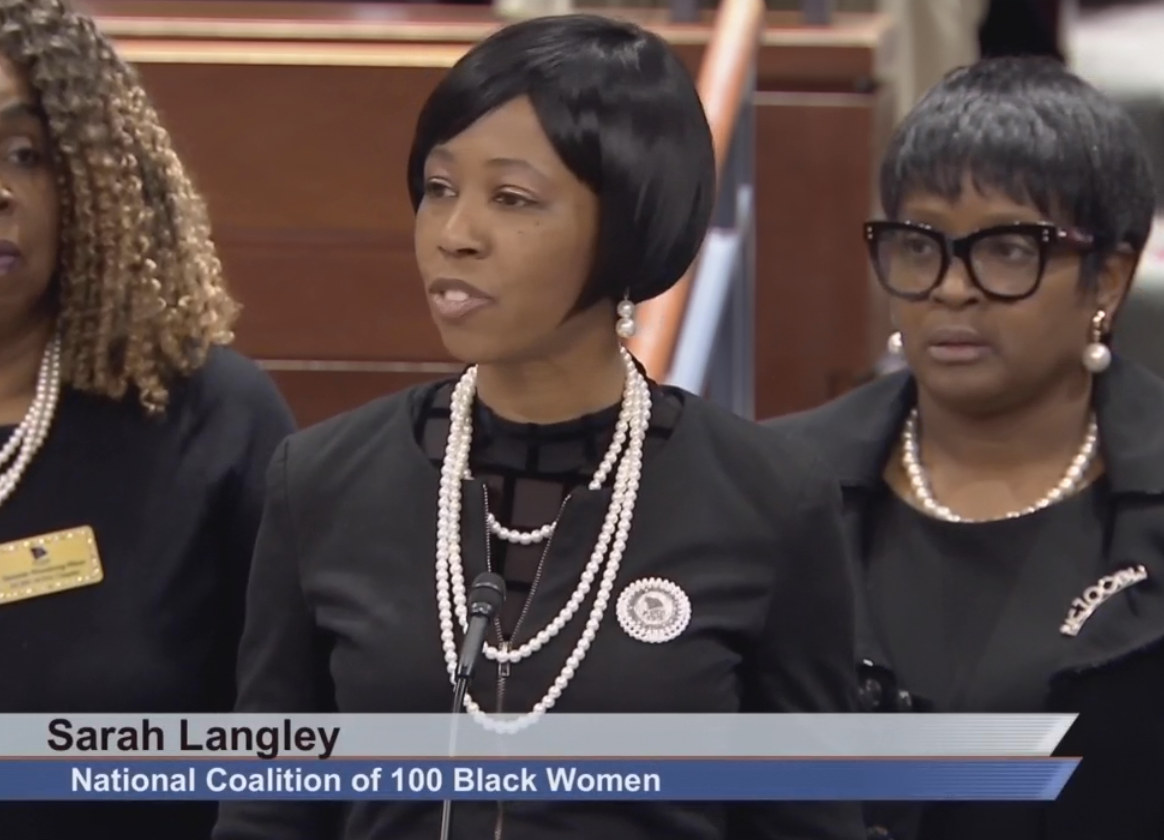
Dr. Sarah Langley of the National Coalition of 100 Black Women, intersection of gender equity and racial disparity: Langley discussed gender equity and racial disparities. She urged the Fairfax General Assembly legislators to consider how they could address these injustices and create equitable workplaces for all. “Advocacy must be intersectional; policies that address gender equity cannot ignore racial disparities or vice versa. Workplace diversity programs must ensure that representation goes beyond tokenism to meaningfully include Black women and other marginalized groups in leadership positions. Moreover, it is essential to establish mentorship programs, enforce equitable pay policies and create safe spaces for employees to voice their concerns… As policy makers, you hold the power to legislate systemic change, and I call on you to champion legislation and initiatives that reflect these principles.”
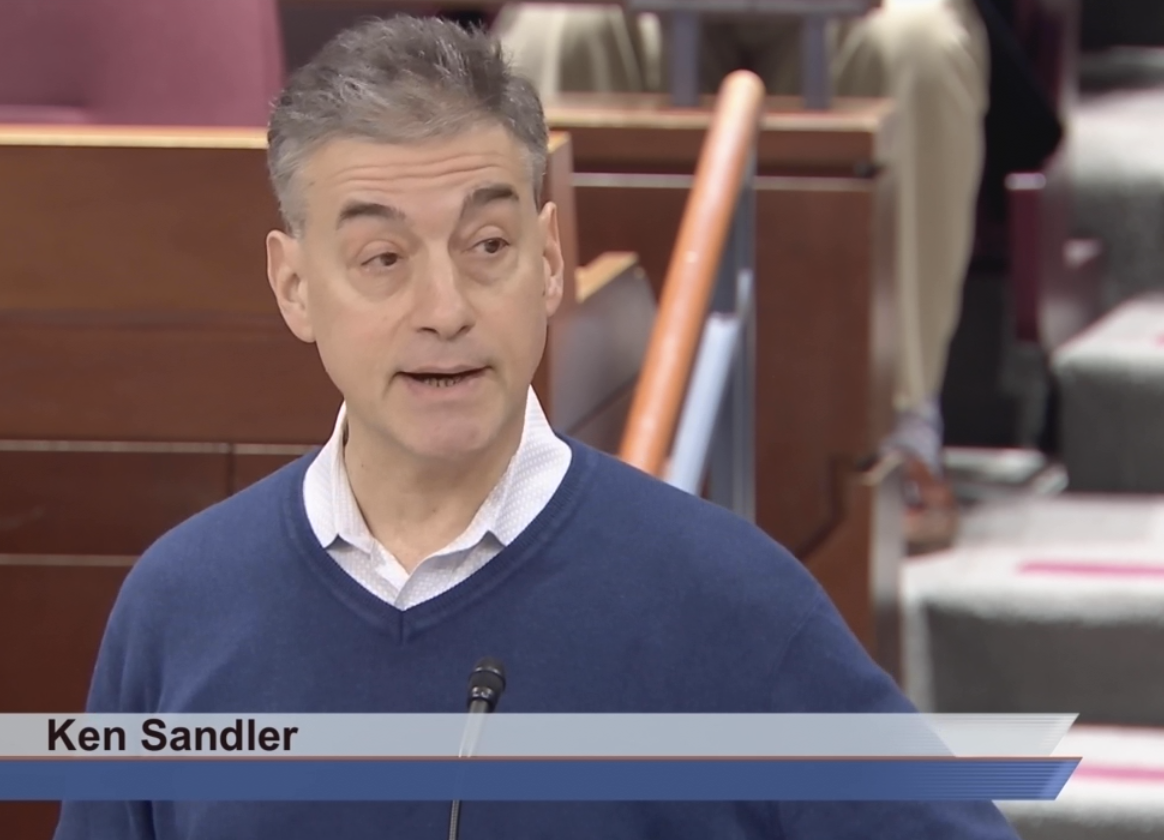
Ken Sandler, “decades of experience and PhD in environmental policy,” unrestrained data center growth, huge electrical usage: “Virginia's path to clean energy is in peril by the proliferation of data centers fueled by AI and crypto, and we will almost certainly miss our clean energy targets unless you take action soon.” Sandler highlighted the exponential growth in energy use and its effect on power demand. “With their massive energy use driving total power demand so dramatically that while demand growth would have been only about 15 percent by 2040 without data centers, without the explosion, with unconstrained growth, it's forecast to be 183 percent, over 10 times more.”
Sandler argued that the proliferation of data centers threatens Virginia's path to 100 percent renewable electricity, citing the JLARC report on data centers. He suggests setting strict energy efficiency standards and requiring strong clean energy sourcing plans. Sandler called on legislators to re-examine tax breaks for data center developers, set electricity rates for data centers that cover all infrastructure costs, and accelerate the development of wind, solar, and energy storage projects.
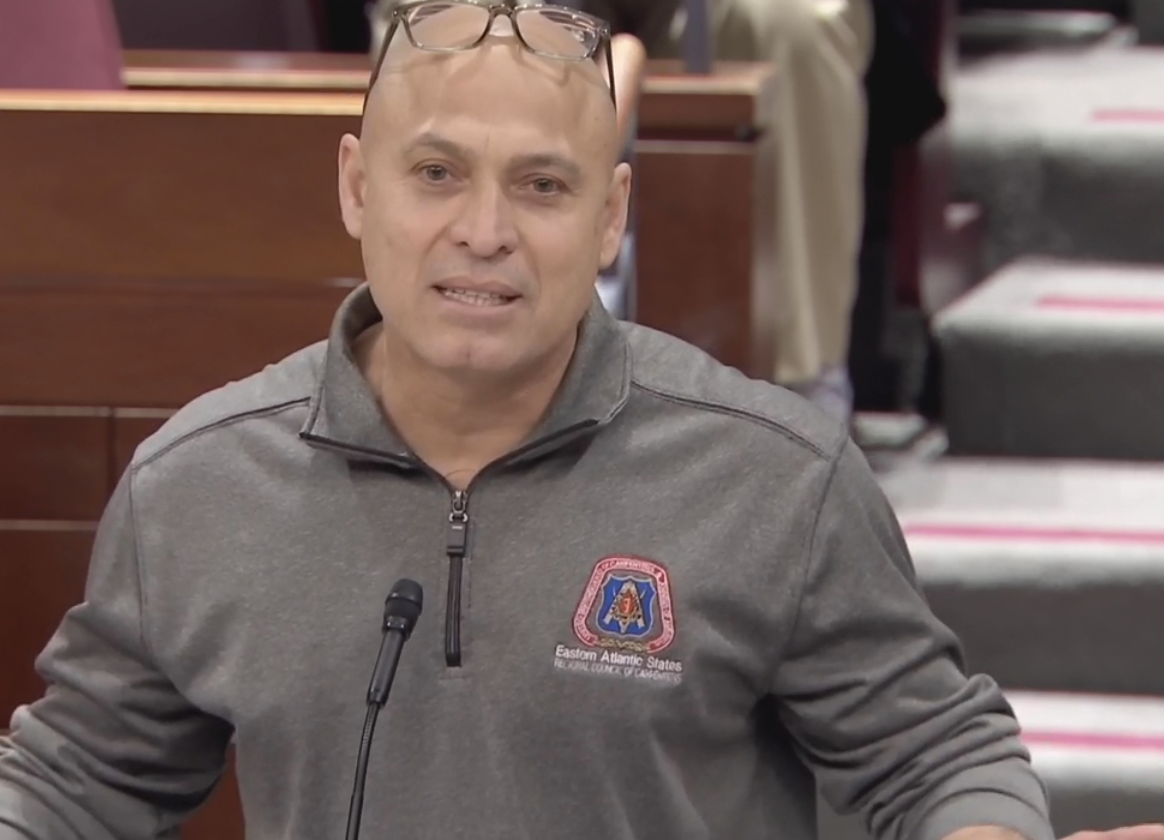
Nelson Aguilar, Eastern Atlantic State Regional Council Carpenters. Union jobs come with Tysons casino entertainment center: Aguilar urged support of the proposed “entertainment center” (casino at Tysons) and noted the developer’s commitment to hiring local unionized labor.
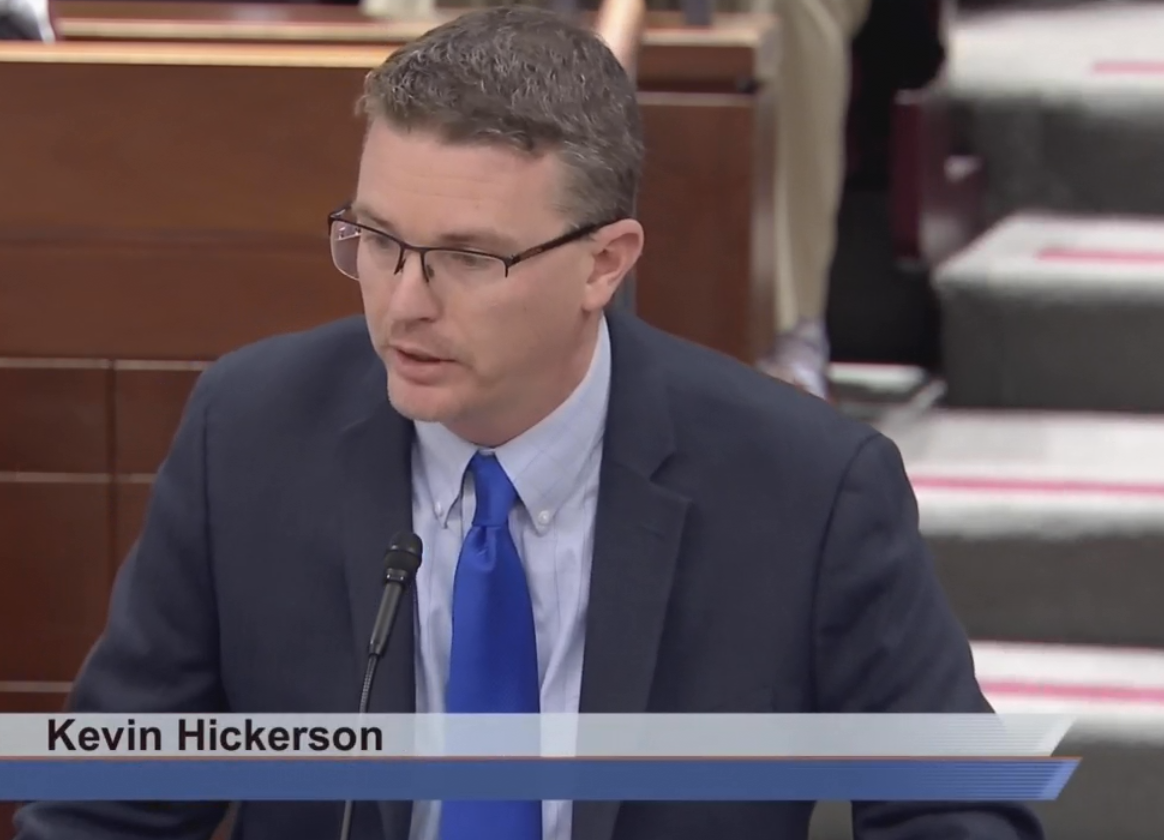
Kevin Hickerson, increase special education funding and distribute savings to school workers: “If we were to increase special education funding here in Fairfax County from the state, we could get more money into our into our coffers, and that would allow us to spread it amongst everybody, including our special education teachers, our instructional assistants, our bus drivers, our custodians and cafeteria workers who are living paycheck to paycheck. So if we can get school funding for special education, let's do that.”
____________________
No Time to Waste
Only 30 days for a year’s worth of bills and resolutions
This year, 2025, being an odd-numbered year, the Virginia General Assembly convenes on the second Wednesday, Jan. 8, for a short session of 30 days. The session may be extended by a 2/3 majority vote in both houses.
In years ending in an even number, the General Assembly convenes on the second Wednesday in January for 60 days. The General Assembly reconvenes six weeks after adjournment to consider the Governor's actions on bills.
Constituents need to understand that 2025, being a shortened session, forces legislators to consider a year's worth of bill and resolution drafts and have them written, filed, amended, and passed in a few weeks. Legislators could begin prefiling bills or joint resolutions on July 15, 2024, through 10 a.m., Wednesday, Jan. 8, 2025. Jan. 17 is “bill cut-off,” the last day to introduce bills and certain joint resolutions.
See Tentative Key Dates for the 2025 General Assembly Session here.
________________________
END